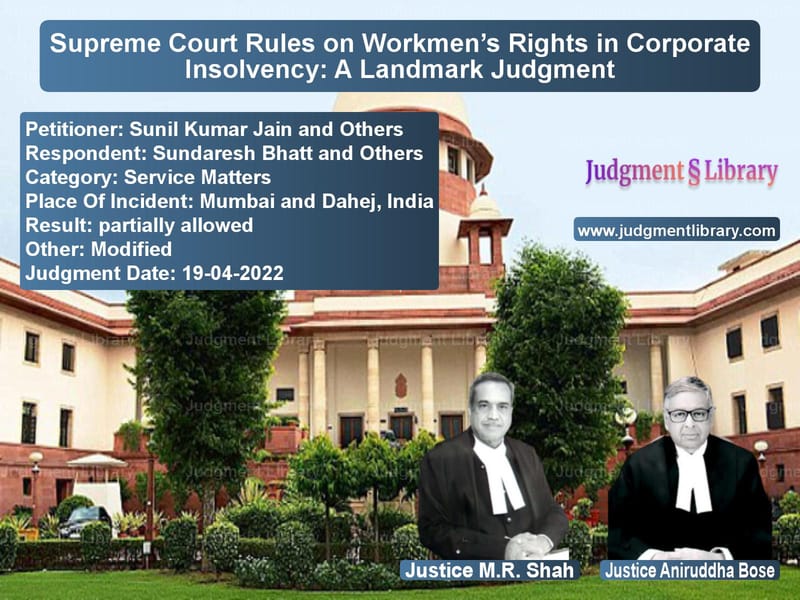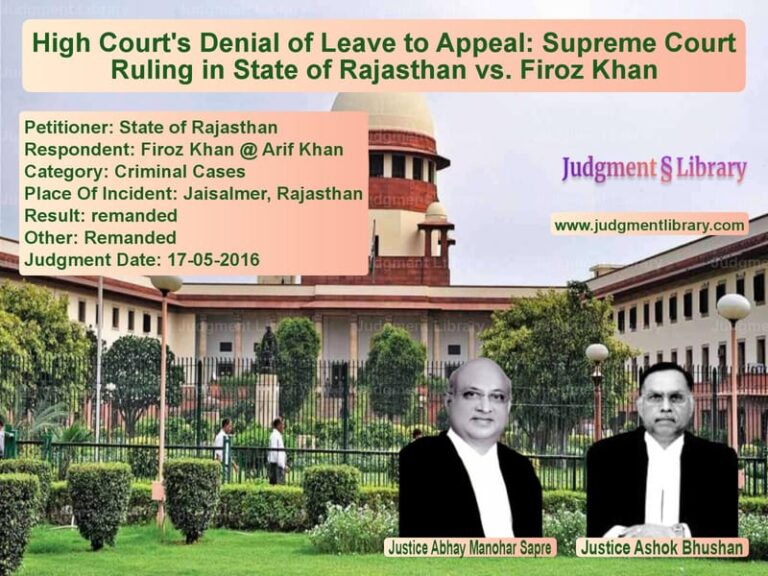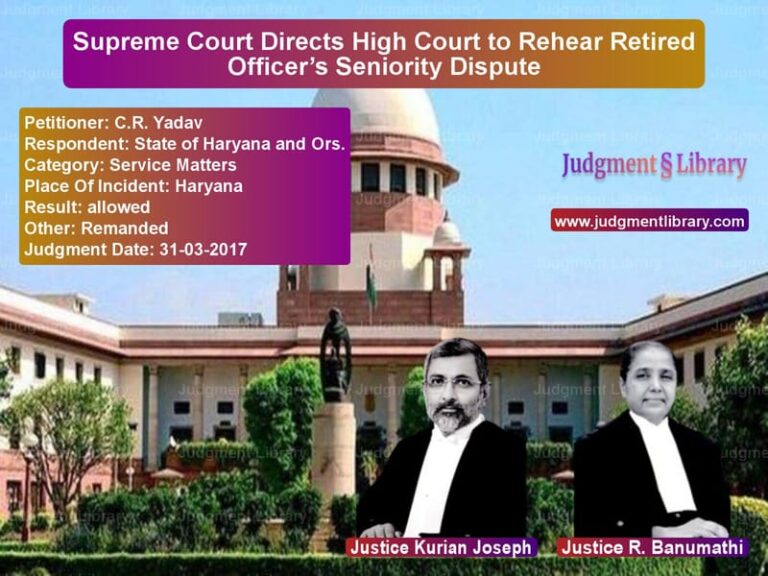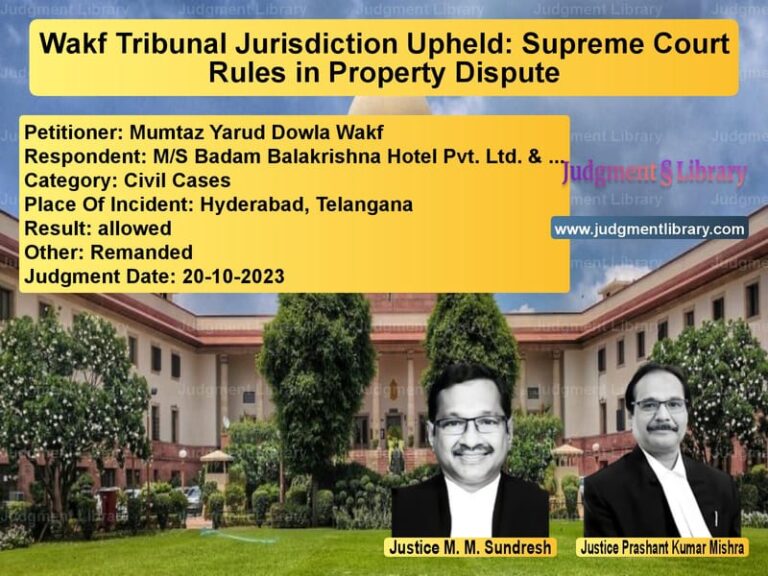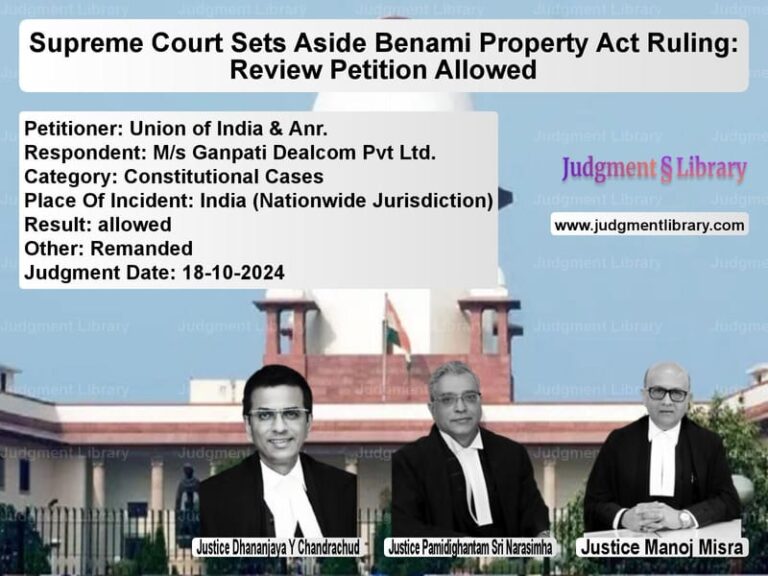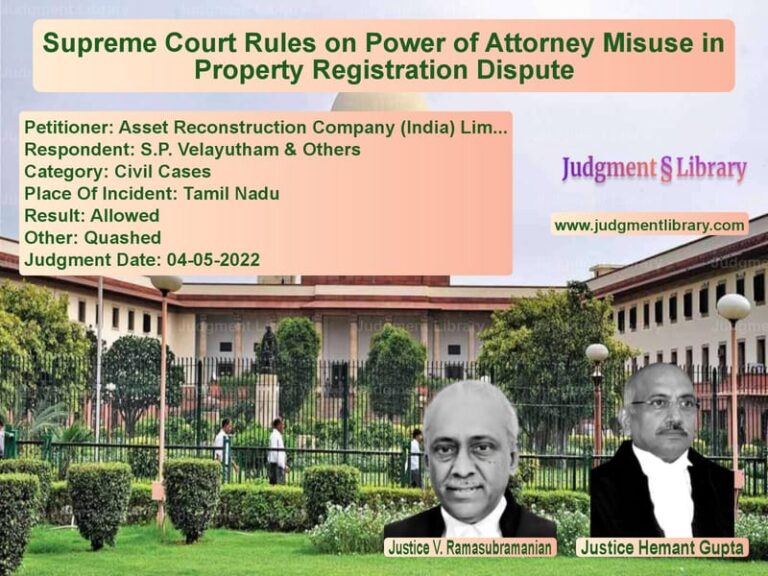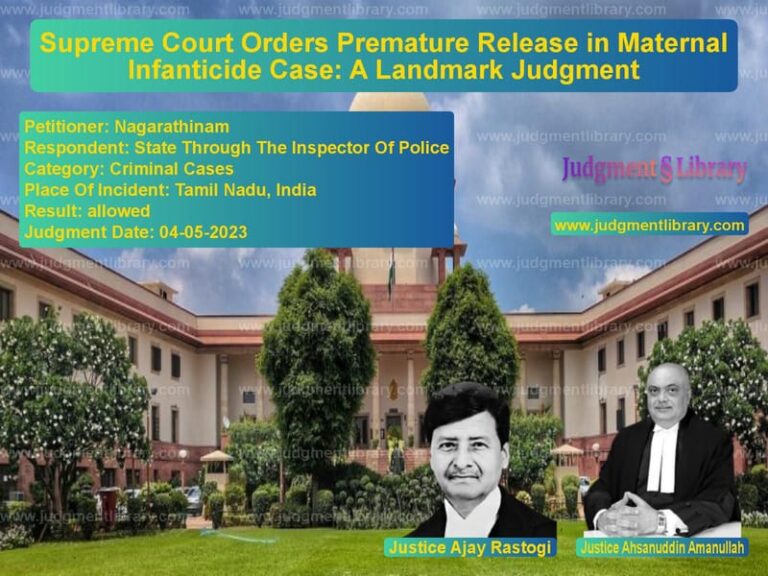Supreme Court Rules on Workmen’s Rights in Corporate Insolvency: A Landmark Judgment
The Supreme Court of India, in the case of Sunil Kumar Jain and Others vs. Sundaresh Bhatt and Others, addressed a critical issue regarding workmen’s and employees’ rights in the context of corporate insolvency. The judgment clarifies the status of salaries and wages of employees during the Corporate Insolvency Resolution Process (CIRP) and their priority in liquidation.
The ruling reinforces that wages or salaries of workmen/employees during the CIRP period will only be considered part of CIRP costs if the corporate debtor was a ‘going concern’ and the employees actually worked during this period. The Court also clarified that provident fund, gratuity, and pension funds are excluded from the liquidation estate and must be paid to employees separately.
Background of the Case
The case originated from the financial collapse of M/s ABG Shipyard Limited, a private-sector shipbuilding company with operations in Dahej and Mumbai. When the company entered insolvency, a dispute arose over unpaid wages and salaries of employees who continued to remain on the company’s payroll during the CIRP period.
The appellants, comprising 272 workmen and employees of the company, approached the National Company Law Tribunal (NCLT) seeking payment of their dues. The NCLT directed the Resolution Professional (RP) to deposit ₹2.75 crores towards pending salaries. However, as no resolution plan was approved, the company moved into liquidation, and the employees’ claims remained unsettled. The employees challenged this before the National Company Law Appellate Tribunal (NCLAT), which allowed them to file claims before the Liquidator. Dissatisfied with the NCLAT order, they approached the Supreme Court.
Petitioners’ Arguments
The employees and workmen argued that:
- The company was managed as a going concern during the CIRP period.
- They were retained on the payroll and reported for work daily.
- The RP issued explicit instructions preventing them from resigning or leaving employment.
- The Insolvency and Bankruptcy Code (IBC) mandates that salaries and wages should be included in CIRP costs.
- Provident fund, gratuity, and pension funds are protected under Section 36(4) of the IBC and should be paid immediately.
Respondents’ Arguments
The Liquidator, representing the company’s creditors, countered with the following points:
- The company was not functioning as a going concern during CIRP.
- Most employees did not contribute work during CIRP.
- Only a few key employees provided necessary assistance and were compensated.
- The employees’ claims should be treated as per the waterfall mechanism under Section 53 of the IBC.
Supreme Court’s Judgment
The Supreme Court bench comprising Justices M.R. Shah and Aniruddha Bose ruled in favor of a balanced approach, making key observations:
- Workmen’s Dues and CIRP Costs: Wages/salaries of employees during CIRP will only be considered part of CIRP costs if it is proven that the company was operated as a going concern and the employees actively worked.
- Liquidation Priorities: If employees did not work during CIRP, their claims must be addressed under the liquidation waterfall mechanism of Section 53.
- Protection of Employee Welfare Funds: Provident fund, gratuity, and pension funds are excluded from the liquidation estate and must be paid to employees before creditors’ claims are settled.
- Verification of Claims: Employees must submit individual claims to the Liquidator, who will determine whether they qualify for CIRP costs.
Implications of the Judgment
This landmark ruling has significant consequences for corporate insolvency cases in India:
- Clarity on Employee Rights: Employees now have a clear legal basis to claim wages as part of CIRP costs, provided they actively worked during the resolution process.
- Guidance for Liquidators: The judgment clarifies how employee claims should be treated in liquidation.
- Enhanced Protection for Employee Welfare: The ruling confirms that provident funds, gratuity, and pension funds are outside the purview of liquidation.
- Precedent for Future Cases: This decision sets a precedent for resolving similar disputes in ongoing and future insolvency cases.
Conclusion
The Supreme Court’s judgment in Sunil Kumar Jain and Others vs. Sundaresh Bhatt and Others is a crucial ruling that strikes a balance between employee rights and the financial realities of corporate insolvency. It ensures fair treatment of workmen and employees while upholding the principles of the Insolvency and Bankruptcy Code.
Read also: https://judgmentlibrary.com/supreme-court-rules-on-territorial-jurisdiction-in-labour-disputes/
Petitioner Name: Sunil Kumar Jain and Others.Respondent Name: Sundaresh Bhatt and Others.Judgment By: Justice M.R. Shah, Justice Aniruddha Bose.Place Of Incident: Mumbai and Dahej, India.Judgment Date: 19-04-2022.
Don’t miss out on the full details! Download the complete judgment in PDF format below and gain valuable insights instantly!
Download Judgment: sunil-kumar-jain-and-vs-sundaresh-bhatt-and-supreme-court-of-india-judgment-dated-19-04-2022.pdf
Directly Download Judgment: Directly download this Judgment
See all petitions in Employment Disputes
See all petitions in Termination Cases
See all petitions in Pension and Gratuity
See all petitions in Judgment by Mukeshkumar Rasikbhai Shah
See all petitions in Judgment by Aniruddha Bose
See all petitions in partially allowed
See all petitions in Modified
See all petitions in supreme court of India judgments April 2022
See all petitions in 2022 judgments
See all posts in Service Matters Category
See all allowed petitions in Service Matters Category
See all Dismissed petitions in Service Matters Category
See all partially allowed petitions in Service Matters Category

